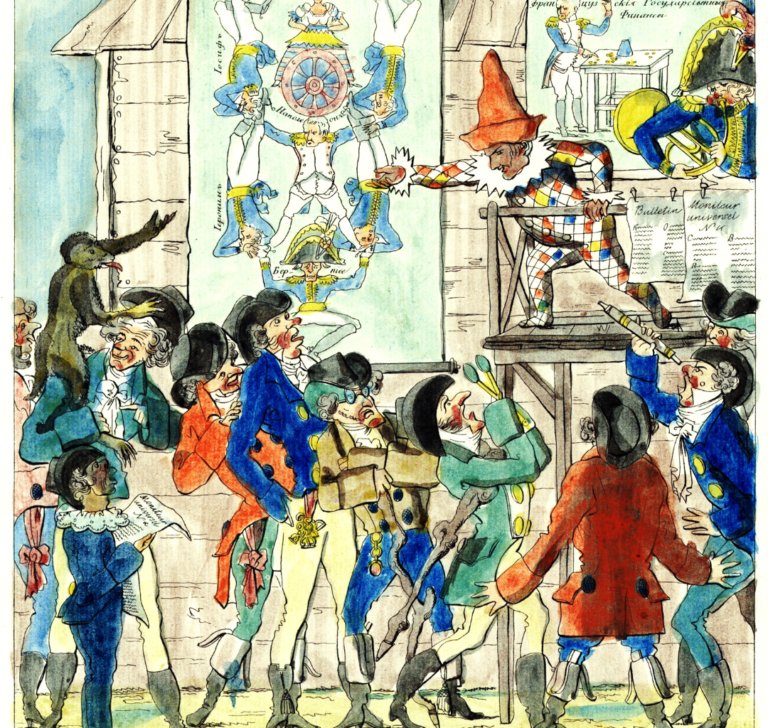The tradition dates back to Renaissance Europe and possibly to Roman times
April 1 marks April Fools’ Day for some, a date that invites pranks among friends, family, coworkers, and even entertainment industry personalities. The exact origin of this tradition is unknown to historians; however, it is known to date back to the European Renaissance and possibly Roman times.
Origins in ancient Rome, true or false?
Historians agree that despite numerous theories about the origin of April Fools’ Day, it is clearly a tradition with centuries of history. Among the theories, one that resonates is its origin in Rome. The Romans celebrated a festival called Hilaria in early April, featuring games and amusements, including masks and impersonations.
This joyful spring festival, honoring Cybele, the Phrygian goddess of nature and fertility, has been linked to the triviality of April Fools’ Day. The Romans also celebrated a festival exactly on April 1, called the Veneralia, dedicated to Venus Verticordia, an epithet of the goddess of love, which strengthens the theory.
In 1983, another story emerged linking April Fools’ Day with Emperor Constantine. According to the story published by the Associated Press, a group of jesters convinced the emperor to appoint one of them as king for a day. The story recounted that a jester named Kugel received the royal command on April 1 and declared the day a day of jokes and fun, thus linking it to April Fools’ Day.
However, the story was false. It was an April Fools’ Day prank written by Boston University professor Joseph Boskin to deceive Associated Press reporter Fred Bayles.

Origins theories in the Middle Ages
In early French writings dating to the European Middle Ages, a prank-playing pastime called “poisson d’avril” or “April’s fish” is recounted. The prank involved sticking paper fish on the backs of unsuspecting friends and family. Once the fish was found, the prankster would shout “poisson d’avril!”
The first known reference to April Fools’ Day is found in a poem by Flemish comedian Eduard De Dene, published in 1561, where a servant is sent on absurd errands on April 1, realizing they are “fool’s errands.” This practice of sending people on senseless tasks remained a popular prank throughout the centuries. A century later, antiquarian John Aubrey named it “April Fools’ Day,” noting its prevalence throughout Europe.

April Fools’ Day in modern times
A new tradition involves businesses and media outlets creating extravagant stories, such as the BBC in the 1950s with the spaghetti harvest story. Notable examples from brands include Google in 2015 displaying mirrored search results, Duolingo announcing a “speak emoji” course in 2017, and 7-Eleven introducing its “tiny gulp” in 2022.
In France and Italy, the tradition of “April’s fish” remains alive, with paper fish cutouts stuck on unsuspecting people’s backs and bakeries offering fish-shaped treats. Meanwhile, in Scotland, two days are dedicated to pranks: “Huntigowk” on April 1 and “Tail Day” on April 2, where tails or “kick me” signs are secretly hung on unsuspecting targets’ backs. Additionally, in Greece, playing pranks on April 1 is believed to bring good luck and a prosperous year.

What Truck Drivers Love Most About Their Job
Truck driving isn’t just a job; for many, it’s a calling that offers a unique blend of freedom, adventure, and independence. By Bob Dilliplaine, Industry

Frozen Roads After Bomb Cyclone: Black Ice, Record Snow and High Risk for Trucks
Frozen roads continue to disrupt freight transportation following the impact of a powerful bomb cyclone, leaving behind black ice, highway shutdowns, power outages, and dangerous winter driving conditions stretching from the Gulf Coast to New England.

Lunar New Year 2026: Ancient Traditions, Renewed Energy, and Massive Celebrations
Lunar New Year 2026 begins on February 17 under the sign of the Fire Horse and is marked by spiritual rituals, family reunions, and large-scale celebrations in both China and the United States, especially in California.

Freedom 250 Grand Prix: How Logistics and Transportation Will Power the Race in Washington
The first-ever IndyCar street race in Washington, D.C., scheduled for August 21–23, will headline the United States’ 250th anniversary celebrations — and it will trigger a massive transportation, freight, and urban logistics operation behind the scenes.

Groundhog Day: What It Means for Trucking When “Phil Sees His Shadow”
The forecast from America’s most famous groundhog is calling for more winter — and that’s an important signal for the trucking industry and cold-season route planning

Love on the open road: the best dating apps for truckers
If you’re looking for someone to go the long haul with, here are the best dating apps for truck drivers. They say love is everywhere…
